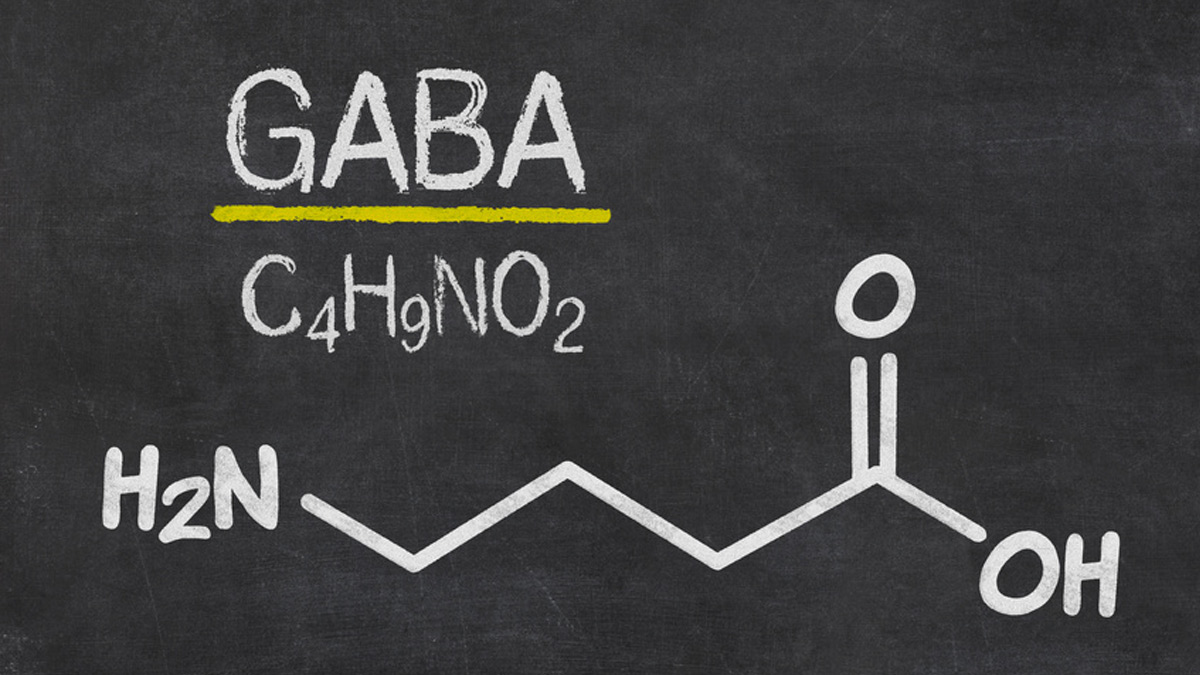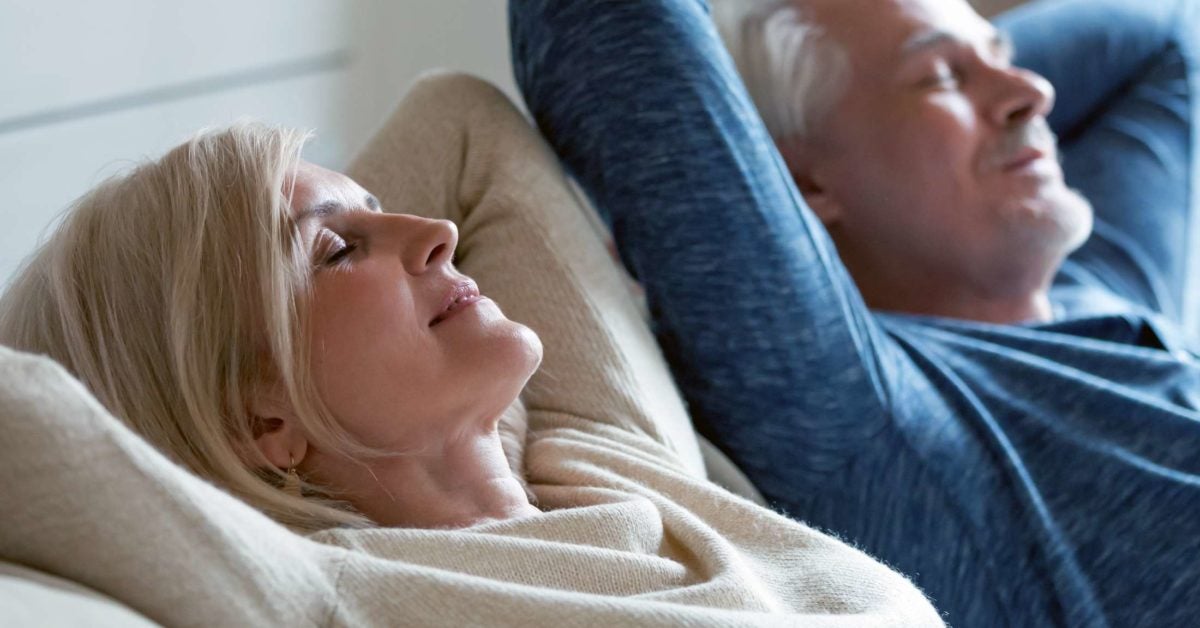
Top 15 Natural Ways to Increase GABA
GABA is the primary inhibitory neurotransmitter in the brain, meaning that it prevents our neurons from over-firing and being over-stimulated. According to some investigators, supplementing GABA may help with anxiety, anxiety, comfort, muscle strain, convulsions, insomnia, and epilepsy.
Many herbs could increase GABA, and almost all of them are considered relatively secure; nonetheless, none of them are accepted by the FDA. Also, you’ll discover GABA supplements which are (or contain) artificial GABA agonists, which could cause dependence. These supplements are bought by many uninformed customers.
What is GABA?
GABA (gamma-aminobutyric acid) is a neurotransmitter released by the neurons in the brain. It has an irreplaceable role in the brain and the nervous system. Neurons that make GABA are called GABAergic neurons and are dispersed throughout the brain.

GABA is the main inhibitory neurotransmitter preventing over-stimulation of nerves. An abnormal GABA decrease can produce psychological illness and symptoms such as depression, anxiety, insomnia, convulsions, and epilepsy.
Mechanism
When a molecule binds to a receptor, it stimulates its activity. The molecule which binds to the receptor is the agonist.
When a GABA agonist (can be a drug or some other substance generated inside or outside the body) interacts with the receptor, the person will feel the effects of stimulated GABA activity, which usually results in comfort and reduced anxiety.
However, you don’t need to consume GABA agonists to stimulate GABA activities in the mind. Some drugs, herbs, and nutritional supplements increase the effect of GABA by increasing the frequency and length of the stimulation of the GABA station, rather than binding GABA receptors directly like a conventional agonist.
These substances are called positive allosteric modulators (PAMs) of GABA.
We’ll need to dip a little into that pharmacological jargon since there’s an inherent gap between agonists and positive allosteric modulators. The positive allosteric modulators have significantly less potential for misuse.
Barbiturates and benzodiazepines are the exceptions. These are two common positive modulators of GABA that can lead to dependence after prolonged use.
These are just two classes of potent tranquilizers, and consistent usage results in a decrease in postsynaptic GABA activities (the neuron isn’t working as correctly as earlier or is down-regulated).
Though some positive modulators of GABA (barbiturates and benzodiazepines) induce dependence, herbal supplements which favorably modulate GABA, like kava, among the most psychoactive herbs, don’t meet the criteria for abuse or addiction.
GABA has two big receptors, GABAA and GABAB [10]. Although more GABA receptors exist, we will only discuss these two big families.
GABAA activation results in sedation, relaxation, reduced anxiety, and short term memory impairment.
Examples of substances which are agonists or positively modulate GABAA are alcohol, benzodiazepines, and kava.
Agonists and positive allosteric modulators of GABAB play a significant role in relieving stress, general and societal anxiety, depression, and muscular strain.
GABAB activation causes less sedative, hypnotic, and memory impairment effects than GABAA unless substantial doses are accepted.
Examples of drugs that act on GABAB comprise baclofen and Phenibut, which encourage muscle relaxation and alleviate stress. Phenibut has reported nootropic properties.
Why Do Some People Supplement GABA?
Remember to speak to your physician before including a new supplement to your daily regimen. Many substances have unexpected consequences, and GABA hasn’t been accepted by the FDA because of inadequate evidence and an imperfect security profile.
The level of GABA action is correlated with feeling relaxed and calm.
In contemporary society, we frequently don’t recognize numerous sources of anxiety. The sound of an urban area or lengthy shifts are variables that increase stress and reduce well-being.
An analysis of 36 volunteers published in a prestigious journal revealed that prolonged stress and living within an urban area equally increased susceptibility to mental illness and increased amygdala activity, a brain region involved in stress, anxiety, and hazard reaction.
Anxiety causes cognitive, judgment, and decision-making handicap decrease attention and produces memory reduction. Having a functional GABA system, together with other genetic traits, enhances the ability to deal with stress, anxiety, and associated mental illness.
In addition to the facets that may induce stress and mental illness, a lot of us are prone to stress, anxiety, and psychological health issues due to genetic factors. These variations could increase one’s vulnerability to stress, depression, sleeplessness, bipolarity, schizophrenia, and spasticity.
Some people believe that supplementing with GABA reduces tension and vulnerability to stress-induced psychological illness. GABA boosts peacefulness and comfort.
Additionally, an active GABA system helps build neurons by increasing the brain-derived neurotrophic factor (BDNF), a protein that boosts the growth and survival of neurons in the brain.
Maintaining normal levels of BDNF is very important for total brain growth and function because low levels of BDNF have been correlated with mental illness and reduced brain plasticity.
Meanwhile, higher levels of BDNF are valuable for learning, cognitive, cognitive functioning, and overall brain health. Sustained BDNF levels could even block or reduce cognitive decline related to aging.

Compounds that May Increase GABA Action
Lots of people turn to supplements in an attempt to increase GABA activity in their brains. The current research on a number of these supplements might be promising, however, it is in its early stages and is consequently considered insufficient to prove gains in GABA activity. Speak with your physician before adding some new nutritional supplements to your health regimen.
Non-Herbal Methods
Many unregulated supplements offered in the market could increase GABA directly. However, a lot of them could lead to addiction. Here are some popular non-herbal tactics to increase GABA.
1) Exercise
Exercise boosts well-being, alleviates stress, and lowers the probability of mental illness.
However, exercise does not directly boost GABA. In reality, prolonged exercise reduces GABA. But do not worry, this can be a temporary physiological reaction.
Chronic exercise, on the contrary, enhances GABA synthesis in the mind. Exercise might not be the best way to increase GABA activity in the brief term.
2) Yoga and Meditation
Many studies have shown that meditation has scientifically confirmed benefits.
Meditative exercises, such as yoga, can slightly increase GABA. A research conducted on 19 yoga professionals has shown that GABA increased by 27% after a yoga session.
Another human research (300 volunteers) also demonstrated that yoga exercise reduces anxiety.
People who meditate have improved GABA and reduced cortisol and norepinephrine levels, which are the enemies of GABA.
Herbal Compounds
It’s important to note that none of the herbs below are accepted by the FDA for any function or medical claim, and a few may very well be poisonous to the liver, heart, or other organs. A whole lot more testing will be required to ascertain whether some of them will be safe and effective for any medical purpose. Speak to your health care provider before trying any of these.
1) Kava (Kavain)
Kava is an unapproved substance which has been flagged as potentially dangerous by the FDA. More clinical studies are required to determine whether it is safe or effective for any purpose.
Kava (Piper methysticum) is a plant traditionally used by people from the South Pacific islands as a drink and medication.
Kava’s effect on GABA is complicated because the plant contains 6 carcinogenic chemicals. Among the major kava psychoactive compounds is kavain, and it functions by stimulating GABAA receptors as a positive allosteric modulator.
Kava is usually prepared as a beverage with all the powder of its own root. The suggested way for drinking kava is by utilizing premium kava prepared with the conventional water extract system.
In individual studies (141, 20, and 101 volunteers), kava improved the symptoms of anxiety, sleeplessness, depression, sleep quality, cognition, tension, and restlessness.
Kava’s anti-anxiety consequences are potent and have been similar to benzodiazepines in animal research.
In a report on human studies on natural herbal treatments, kava performed better than other herbal supplements in reducing anxiety.
However, the FDA has issued warnings on the possible toxic effects of kava, which has been linked to severe liver disease, heart issues, and eye irritation.
Kava has an intricate interaction with many cytochrome enzymes, which could affect the liver. Kava interacts with CYP450 and with many other cytochrome enzymes (CYPs).
Kava’s interactions with other drugs have not been studied in-depth and can potentially lead to adverse consequences. Do not blend kava with prescription drugs.
Because of such untoward interactions, kava has been associated with liver toxicity when mixed with drugs or medications, in addition to from kava users with preexisting liver disorder.
Despite reports on liver toxicity, at medium doses, kava is well tolerated by healthy individuals with minimal side effects.
Yet, frequent kava users must have regular liver function testing.
Kava has demonstrated no evidence of potential dependence or withdrawal symptoms.
2) Magnolia Bark (Magnolia officinalis, honokiol, magnolol)
Magnolia bark is an unapproved substance without clinical information to back up the promises of conventional practitioners. Clinical studies will be required to ascertain whether it’s safe or effective for any purpose.
Magnolia Officinalis, also known as magnolia bark, has been widely used in traditional Chinese medicine and has many advantages. Its active elements include honokiol and magnolol, which are located in the bark of this shrub.
Honokiol and magnolol act as positive allosteric modulators of GABAA receptors and relieve symptoms of depression, anxiety, and seizures by promoting relaxation.
Magnolia bark or honokiol and magnolol pure extracts may be taken as supplements. In animal research, honokiol and magnolol supplements reduced depression, stress, and epileptic seizures.
Honokiol and magnolol have immense potential as nutritional supplements due to their broad assortment of medical properties.
In animal and test-tube studies, both honokiol and magnolol showed antioxidant properties. Magnolia extracts also protect the brain, liver, heart, and have anti-inflammatory and anti-inflammatory properties.
Supplementation with honokiol has reported antithrombotic effects (decreased blood’s ability to form clots). For that reason, it should not be taken if you’re on antithrombotic drugs or you have a blood clotting condition such as hemophilia.
No instances of dependence or dependence have been reported.
3) Valerian (Valeriana officinalis, valerenic acid)
Valerian has a very long tradition of medicinal use, dating back to ancient Greece. This plant is found in many continents and continues to be widely used due to its stress relieving and relaxing properties.
The active component in valerian, located mostly in its origin, is known as valerenic acid. Valerenic acid positively modulates GABA through several GABAA receptor subunits.
Valerenic acid appears to be the most potent active ingredient since valerian crops without valerenic acid don’t raise GABA receptors.
In approximately 20 human studies, 1261 patients with sleep disorders had been treated with a dose of between 300 to 1000 mg of valerian. Valerian faithfully improved sleep latency and quality in people with insomnia, obsessive-compulsive disorder (OCD), and restlessness.
Valerian also reduced pain notably in menopausal women.
Valerian seems to be as effective as benzodiazepines for treating generalized anxiety disorder (GAD) compared to placebo. But a review says that these results must be interpreted with caution because of the reduced number of participants (12 per treatment category).
Another study performed on 36 patients showed no substantial gap between valerian and placebo for treating anxiety.
One study (128 participants) noticed that a substantial increase in morning sleepiness and lethargy from valerian purchased over the counter as compared to their own extract.
One instance of Valerian withdrawal leading to coronary disease and delirium has been reported. Nevertheless, valerian and its own root extract are well ventilated with no reported dependence or significant side effects in numerous studies.
In summary, Valerian root extract appears to be well tolerated and might promote relaxation, decrease anxiety, and improve sleep. Despite many anecdotal reports on Valerian’s effects on stress, many undersized studies provided inconclusive results.
Note, however, that valerian hasn’t yet been accepted by the FDA for any health function or health claim. Talk with your physician before adding any new supplement to your daily regimen.
4) Skullcap Herbs (Scutellaria baicalensis, Scutellaria lateriflora, Baikal skullcap, and Chinese skullcap)
Scutellaria baicalensis, also known as Chinese or Baikal skullcap, is a herb used in traditional Chinese medicine. It includes bioactive flavonoids, which act as potent antioxidants with numerous health benefits.
Supplementation not just has anti-anxiety and anticonvulsive effects but also may improve cognition, neuron regeneration, and endurance.
There are active elements in the Baikal skullcap. Baicalein and its structural analog baicalin are positive allosteric modulators of both benzodiazepine and non-benzodiazepine sites of GABAA receptors.
Wogonin and its analogs are also components of Baikal skullcap that behave as positive allosteric modulators of the benzodiazepine websites of GABAA receptors. These lead to the calming effects of the Baikal skullcap.
Wogonin extracts had anticonvulsant effects in animal studies.
Baikal skullcap also contains small quantities of apigenin, oroxylin A, along with other flavonoids that have comparable cognitive effects to wogonin.
Scutellaria lateriflora enhanced pressure in 19 healthy volunteers with no notable unwanted effects.
Overall, it seems that species of Scutellaria, lateriflora, and baicalensis are well tolerated because of their non-toxic flavonoids and have potent antioxidant and calming properties when taken as a supplement.
Note, nevertheless, that skullcap has not been approved by the FDA for any health purpose or health care. Talk to your physician before adding any new supplement to your everyday regimen.
5) Lemon Balm (Melissa officinalis)
Lemon balm is traditionally eaten as a tea and is famous for its calming properties. It has an intricate pharmacological profile with many psychoactive organic chemicals, which range from polyphenols to terpenes.
Lemon balm contains antioxidant properties, together with rosmarinic acid as its most potent psychoactive compound.
Rosmarinic acid increases GABA levels by inhibiting the enzyme (4-aminobutyrate transaminase) that converts GABA into L-glutamate.
This receptor is a popular goal for treating anxiety and epilepsy-related neurological ailments.
Lemon balm can be taken in its infusion form. In 3 studies (18, 20, and 20 participants), involving 300 — 1,000 mg of lemon balm extract reduced anxiety, sleeplessness, stress, and alertness, meanwhile improving memory, mood, and mental processing.
Its calming properties additionally improved sleep quality in 20 volunteers who suffered from sleep disturbances and anxiety disorders.
Lemon balm also relieved heart palpitations in a 55-participants of human research (DB-RCT).
Lemon balm is well taken. No studies have reported serious side effects, tolerance, or dependence associated with lemon balm supplementation. In rats, chronic intake of lemon balm showed consistent calming properties with no reported tolerance or side effects.
Notice, nevertheless, that lemon balm has not yet been approved by the FDA for any health function or health care. Talk with your doctor before adding any new supplement to your daily regimen.
6) Black Seed Oil (Nigella Sativa)
Thymoquinone, within Nigella sativa and Monarda fistulosa (bee balm) essential oil extracts, can increase GABA activity in animals.
Nigella sativa (black seed oil infusion ) enhances inflammation, blood pressure, and stress with no side effects, as shown by multiple animals and human research (117 and 103 volunteers).
Note, however, that black seed oil has not yet been approved by the FDA for any medical purpose or health care. Talk with your physician before adding any new supplement to your everyday regimen.
7) Jasmine Plants
Methyl jasmonate and cis-jasmone discovered in Jasmine plants (Jasminum officinale) can enhance the operation of GABA receptors in cell studies. However, no human or even animal research have been conducted to investigate whether this effect holds at a living system.
8) Ashwagandha (Withania somnifera)
In cell-based studies, extracts of ashwagandha have shown favorable effects in conjunction with other positive allosteric modulators of GABA (such as diazepam) and appear to increase GABA activity when low levels of GABA exist.
Withanolides discovered in ashwagandha are thought to be responsible for its benefits.
In animal research, ashwagandha’s sedative and relaxing properties had been hindered by GABA blockers.
In human studies (100, 40, 39, and 64 volunteers), ashwagandha extracts, between 250 and 1000 mg per day, reduced anxiety, nervousness, sleeplessness, and blood pressure and induced mild sedation.
Ashwagandha is generally safe but may increase thyroid hormone levels when supplemented consistently, and also a case of thyrotoxicosis in humans has been reported.
Notice, nevertheless, that ashwagandha has not yet been approved by the FDA for any health function or health claim. Talk to your doctor before adding any new supplement to your daily regimen.
9) Lavender (Lavandula)
In animal research, constituents of lavender essential oil, such as linalool and borneol mildly increased GABA activity.
Lavender safely and reliably improved anxiety and sleep quality in multiple human research (221, 77, 47, and 10 participants).
Note, nevertheless, that lavender has not been approved by the FDA for any medical function or health claim. Talk with your doctor before adding any new supplement to your daily regimen.
10) Theanine
Although theanine can be seen in several plants, it isn’t contained in the herbal supplements department since it would be difficult to consume enough theanine to produce a significant impact through herbal supplementation only.
Theanine reduced psychological and physiological stress reactions while enhancing mood and comfort in human studies (27 and 12 participants).
What’s more, it appears that theanine is also able to reasonably enhance sleep quality in young adolescents with ADHD.
No substantial adverse effects of theanine are found in humans studies, although a few online anecdotal reports maintain tolerance after daily usage.
Theanine can mildly increase monoamine levels in the brain, such as serotonin, dopamine, glycine, and GABA (by about 20%).
These studies are still limited and insufficient to conclude that theanine faithfully increases GABA. Future clinical studies will be required to ascertain if theanine is effective and safe for this use. Talk to your doctor before adding any new supplement to your daily regimen.
11) Apigenin (mostly located in chamomile, Matricaria recutita L, and in feverfew, Tanacetum parthenium)
Apigenin is a flavonoid found in many traditionally used herbs, such as chamomile, feverfew, celery, coneflower, and passionflower. Chamomile has the greatest levels of apigenin, accounting for 1 percent of its dry weight, followed closely by feverfew with 0.5percent.
It can be gotten from chamomile tea or its infusion as a nutritional supplement. It has anti-cancer and anti-oxidative properties and may even reduce tau and amyloid-beta deposition and accumulation, which may potentially reduce the risk of Alzheimer’s disease and neuroinflammation.
In individual studies (57 and 61 subjects), chamomile extracts (comprising apigenin) reduced mild to moderate levels of anxiety, depression, and anxiety, without severe side effects.
Apigenin is a benzodiazepine receptor activator which has anti-anxiety properties.
Apigenin enhances GABA transmission, through its activity on the benzodiazepine receptor. Additionally, it dampens NMDA receptors of the glutamate family (the key excitatory system, instead of GABA).
Unless a huge dose is absorbed, apigenin is effective in reducing anxiety without sedation.
Apigenin is well tolerated and often found in dietary resources. No notable side effects are reported.
The available studies are not regarded as sufficient to ascertain whether apigenin can safely and efficiently increase GABA. Future clinical trials will be needed.
12) Green Tea (Camellia Sinensis)
EGCG (Epigallocatechin gallate), a chemical of green tea, increases GABA action by positively modulating benzodiazepine receptors.
However, its promising properties don’t fully translate into important results in human studies, probably because of the low oral bioavailability.
13) Taurine
Taurine is an amino acid involved in the health of the heart and mind. It’s found in many dietary sources and can bind to both GABAA and GABAB receptors.
Taurine supplements are secure since many human studies (29, 23, 11, and 36 participants) have revealed no side effects when compared to 3 g per day are consumed.
Although taurine can bind to GABA receptors, no human studies have shown its capability to reduce emotional stress or anxiety. Taurine improved depression and anxiety in animal studies.
The available studies aren’t regarded as sufficient to ascertain whether taurine can safely and efficiently increase GABA. Future clinical trials will be needed.
Others
The materials below haven’t been accepted by the FDA for any health purpose or health care. They could cause undesirable side effects or interact with medication or other compounds. Talk with your physician before adding some of them to your everyday regimen.
- Red Sage — Terpenoids and diterpenoids (for instance, miltirone and galdosol), found in Salvia miltiorrhiza and other species of the Salvia household (also called Salvia, Red blossom, or Chinese sage), act as partial activators of benzodiazepine receptors without withdrawal symptoms in animals.
- Cussonia Plants — MS-1, MS-2, and MS-3, extracted from the traditional African medicinal herb Cussonia zimmermannii, may stimulate GABA activities by positive allosteric modulation of GABAA receptors.
- Cyperus And Curcuma Plants — Isocurcumenol, generally found in Curcuma zedoaria (White turmeric) and Cyperus rotundus (Nutgrass), favorably modulates GABAA receptors and, therefore, increased GABA action in animals.
- GABA Nutritional supplements — GABA supplements are widely sold and available off the shelves in large grocery stores. However, GABA supplementation doesn’t influence GABA levels in the brain because GABA is unable to cross the blood-brain barrier.
- Alcohol — Ethanol is the main component responsible for its impact on alcoholic beverages. Alcohol’s sedative, hypnotic, anti-anxiety, and anticonvulsant effects stem from ethanol’s positive allosteric modulation of GABAA receptors.
Popular Synthetic Compounds
The FDA considers these substances to be unapproved drugs with potential negative effects and incomplete safety profiles. We don’t currently have enough evidence to ascertain if they are effective or safe for raising GABA. Talk with your health care provider before trying any of these.
1) Picamilon
Picamilon is a synthetic compound manufactured from the Soviet Union. Picamilon can cross the blood-brain barrier, in which it is broken down into GABA and niacin, to produce a relaxing and calming response.
Picamilon has low toxicity, but just a few studies have investigated this supplement. Long-term use might cause mild dependency or undiscovered adverse events.
2) Phenibut
Phenibut is also a synthetic compound developed from the Soviet Union. Phenibut has strong anti-anxiety results and could be used as a nootropic to enhance cognitive functions.
Phenibut is unregulated in many nations such as the United States and can also be purchased online.
Phenibut is an agonist of the GABAB receptor and, thus, can produce tolerance rapidly. Consistent use of Phenibut can quickly lead to dependence, dependence, and withdrawal symptoms.
Withdrawal symptoms are similar to that of baclofen, alcohol, and benzodiazepines. A study reported that a case of Phenibut withdrawal after two months of use that lead to psychosis and hallucination. The patient was eventually treated with benzodiazepines.
Though Phenibut seems to create significant positive cognitive and tranquilizing effects, users supplementing Phenibut should do extensive research regarding the correct dose and frequency of usage to stop dependence and withdrawal symptoms.
Precaution
Some GABA supplements can lead to addiction or dependence. These effects will be noted and other reported side effects if mentioned in any study. Also, herbal supplements in the marketplace might be adulterated. Therefore, you should buy reliable and reviewed supplements.
Natural GABA Blockers
GABA antagonists or ‘negative modulators’ block the effects of GABA.
Here’s a list of substances which may obstruct GABA:
- Pregnenolone
- DHEA and DHEA-S
- Ginkgo/bilobalide and ginkgolide
- Zinc
- Wormwood/thujone — Thujone can also be located in sage
- Muira Puama
- Theobromine and theophylline
- Opioids
Takeaway
GABA is a neurotransmitter that can cause you to feel more relaxed; people who are trying to handle stress and anxiety therefore often try to increase GABA.
Exercise, meditation, and yoga can increase GABA without the need for nutritional supplements or other compounds. Many supplements are believed to help, such as kava, Valerian, and ashwagandha, but these have not been sufficiently studied and are not approved by the FDA.


Sorry, the comment form is closed at this time.